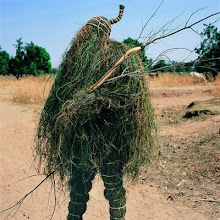found on the AOL news site
and reported by
"We estimate that millions of pounds of Chinese honey continue to enter the U.S. from countries that do not have commercial honey businesses," said
(May 6) -- After years of downplaying and even ignoring the problem of illegal and often-tainted foreign honey smuggled onto U.S. grocery shelves and into food products, major North American importers and sellers of the sweet syrup today reversed course, launching a campaign to enlist the public in combating the threat.
"We estimate that millions of pounds of Chinese honey continue to enter the U.S. from countries that do not have commercial honey businesses," said Jill Clark, president of Dutch Gold Honey of Lancaster, Pa.
"For example, countries such as Indonesia, Malaysia, Taiwan, Thailand, the Philippines and Mongolia raise few bees and have no history of producing honey in commercial quantities, yet have recently exported large amounts of honey to the United States," Clark added in a statement announcing the creation of a website that tells consumers, honey companies, food manufacturers and retailers what actions they can take to help eliminate illegally imported honey.
AFP / Getty Images
A beekeeper harvests honey in Hefei, China, in April. American honey producers are trying stop the flow of illegally imported Chinese honey.
For more than three years, federal investigators have had hit-or-miss successes trying to intercept box-car-sized loads of illegally labeled honey coming into ports on both coasts and along the Gulf of Mexico. More than a dozen arrests have been made of honey launderers, and ongoing investigations are reportedly targeting a number of other major players in the international scam.
Almost all have centered on honey from China intentionally mislabeled as coming from elsewhere to avoid paying stiff import tariffs of up to 500 percent. Honey from that country also attracts scrutiny because it is often contaminated with illegal animal antibiotics.
Those behind the new initiative say the illegal honey sales have cost the U.S. up to $200 million in uncollected import duties in the past two years and threaten the domestic honey business and the future of America's beekeepers.
"When honey is imported illegally, no one can be confident of its true source and quality. Some products are not 100 percent honey and have other quality issues," Clark said.
While many consumers' awareness is limited to the golden liquid in plastic honey bears, in reality most of the honey imported into the U.S. is delivered in 250-gallon or tanker-car-sized loads and ends up as an ingredient in cereals, breads, cookies, crackers, breakfast bars, salad dressings, barbecue sauces, mustards, beverages, ice creams, yogurts and candies. Investigators say that some food processors are prime -- and often willing -- targets for brokers trying to offload lower-cost, bogus honey.
In late April, AOL News reported that the nation's leading honey packers and sellers had gathered for a secret meeting in Chicago to discuss the impact that the smuggling was having on their business. Of the four firms that launched today's public awareness campaign, only Dutch Gold and Golden Heritage were listed as having representatives at the unpublicized roundtable.
And indeed, some of the nation's largest honey packagers and major suppliers have not signed onto the public-education program launched today, indicating that the industry has not coalesced around a solution to the problem. For example, not listed among the participants is Sue Bee, formally known as Sioux Bee Honey, which says it's the country's largest supplier of honey, moving about 40 million pounds each year. The company did not respond to e-mail messages Wednesday night.
Investigations into international honey laundering were first detailed in December 2008 by the Seattle Post-Intelligencer.
New laboratory developments may aid those inquiries going forward. Until recently, only a very busy facility in Germany had the capacity to help the honey trade and criminal investigators verify the true source of the golden nectar. But for the first time, a U.S. lab has succeeded in conducting those tests. Texas A&M University announced last week that Vaughn Bryant, a palynologist and an anthropology professor, is now the only person in the U.S. doing melissopalynology -- the study of pollen in honey that allows identification of its country of origin.
By performing isotopic studies, Bryant says he has examined more than 100 honey samples for importers, exporters, beekeepers and producers with his DNA-based analysis. Many of the samples he analyzed contained labels from other countries when in fact they originated in China but were re-routed to avoid tariffs, the professor said.
Some foreign exporters get around the tariff by mixing honey from different sources; others infuse up to 50 percent high fructose corn syrup into the honey.
And even as U.S. authorities have gained a new investigative tool, it's becoming common now for smugglers to use a process called ultra-filtration that removes the pollen and makes it almost impossible for any laboratory to determine its origin.
"The beekeepers of the U.S. have been pleading with the Food and Drug Administration to enact stricter guidelines about accurate labeling for honey, but that is a long, slow process,'' Bryant said. "Meanwhile, I'm trying to help out here and there, but it's almost impossible to keep up."

No comments:
Post a Comment